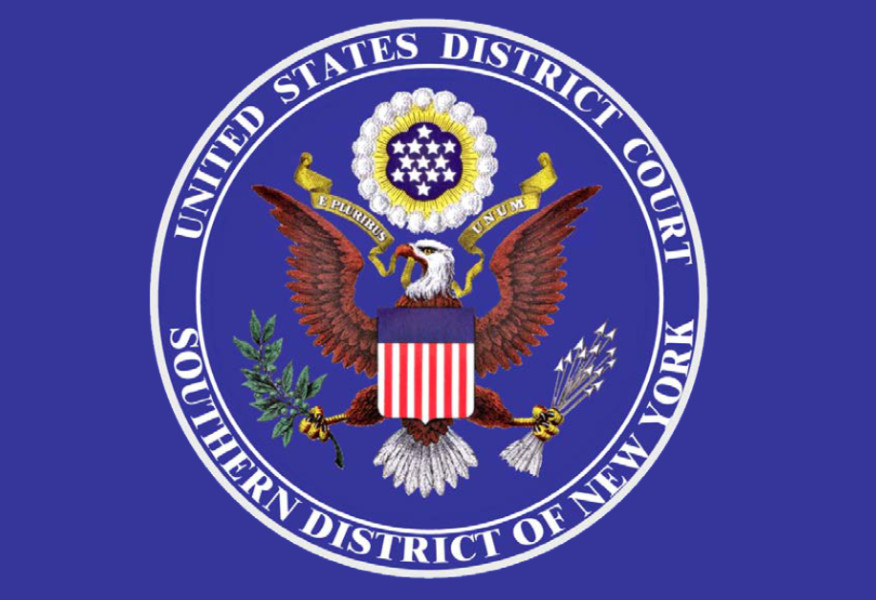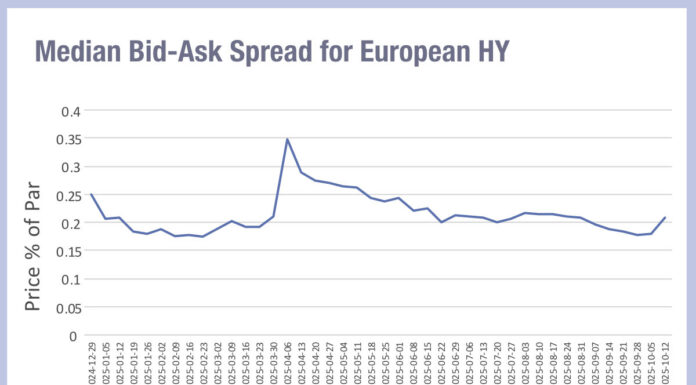 In the US Southern District Court of New York, a class-action lawsuit has been brought against a group of banks, alleging that since 1 August 2006, they have “agreed to unreasonably restrain competition in the secondary trading market for odd-lots of corporate bonds in the United States” leading to “artificially higher transaction costs for odd-lot corporate bonds, by way of artificially higher bid-ask spreads,” of between 25% to 300%.
In the US Southern District Court of New York, a class-action lawsuit has been brought against a group of banks, alleging that since 1 August 2006, they have “agreed to unreasonably restrain competition in the secondary trading market for odd-lots of corporate bonds in the United States” leading to “artificially higher transaction costs for odd-lot corporate bonds, by way of artificially higher bid-ask spreads,” of between 25% to 300%.
The case references 11 academic and analyst studies, which evidence higher spreads when trading odd lots, meaning trades of less than US$1 million, over round which are trades of over US$1 million or a multiple of US$1 million.
“No reasonable economic justification explains the magnitude of the pricing disparity between odd-lot and round-lot trades,” says the document submitted by the plaintiff, Isabel Litovich, a resident of Puerto Rico and a former client of Morgan Stanley.
“In a truly competitive market, multiple factors (such as advancements in technology and the desire to secure a greater share of the growing odd lot market) suggest that Defendants should be narrowing their bid-offer spreads on odd-lots towards parity with the already profitable round-lot levels, in an effort to divert trades away from dealer competitors,” it continued.
The case says that the defendants have a common motive to conspire in the “highly concentrated secondary market of OTC trading in corporate bonds,”; that a high level of communication and opportunities for communication between firms occurs to allow them to realise higher spreads on odd-lot bond transactions than those for round lots; that wider bid-offer spreads for odd-lots persist even as advances in electronic trading should have lowered trading costs; and that odd-lot bonds offered in international bond markets with lower volumes and less liquidity than the US market do not trade at wider spreads compared to round-lots.
“There is no explanation – other than concerted action by Defendants to maintain wider odd-lot spreads, and thus higher profits for themselves collectively – for why odd-lot spreads for corporate bonds issued and traded in the United States have not converged toward round-lot spreads,” the document alleges.
The banks cited include BAML, Barclays, Citigroup, Credit Suisse, Deutsche Bank, Goldman Sachs, JPMorgan, Morgan Stanley, NatWest Markets and Wells Fargo.
The case notes that where the firms have worked together they have in some cases “acted in concert against … market evolutions through group boycotts of electronic platforms that would increase pre-trade pricing transparency for retail investors dealing in odd-lots, and they have colluded to shut down odd-lot-focused electronic trading platforms that might have afforded access to retail investors.”
The defendants’ joint previous ownership of electronic bond-trading platform Tradeweb, is cited as an example of alleged collusion, while it is also alleged they used their “market power as oligopsony* subscribers to Bloomberg’s terminal service and their role as providers of liquidity and order flow to Bloomberg’s electronic corporate bond trading platform in anti-competitive ways…, specifically, Defendants forced Bloomberg to deny and/or delay access to Bloomberg’s TOMS – an essential facility necessary to participate in electronic trading of corporate bonds to platforms such as NYSE Bonds.”
The case is recorded as Litovich v Bank of America Corp et al, U.S. District Court, Southern District of New York, No. 20-03154.
*Oligopsony – a state of the market in which only a small number of buyers exists for a product.
©Markets Media Europe 2025













